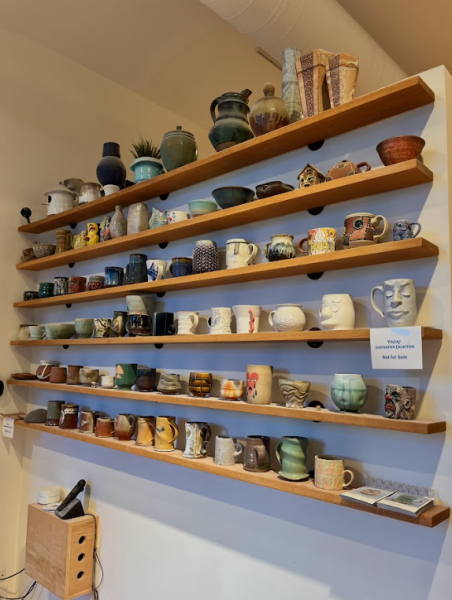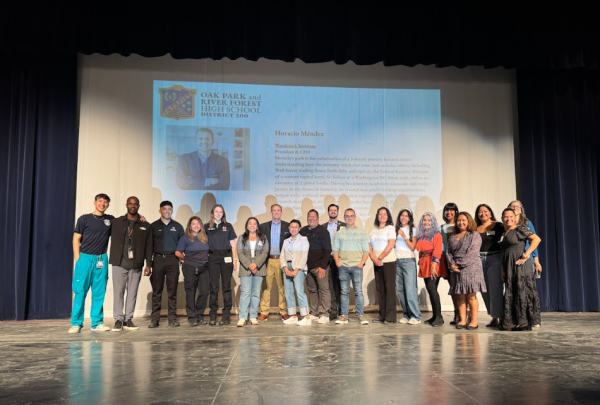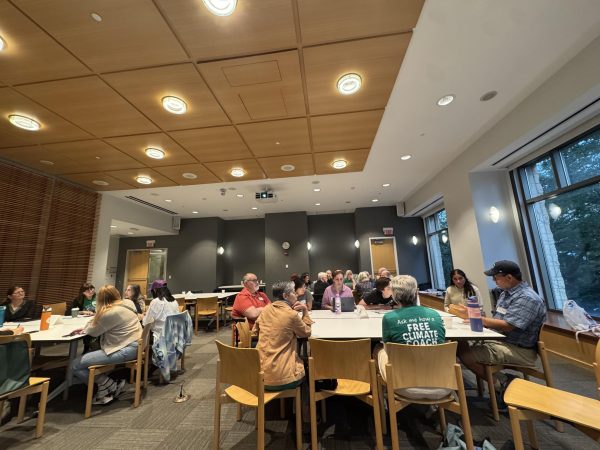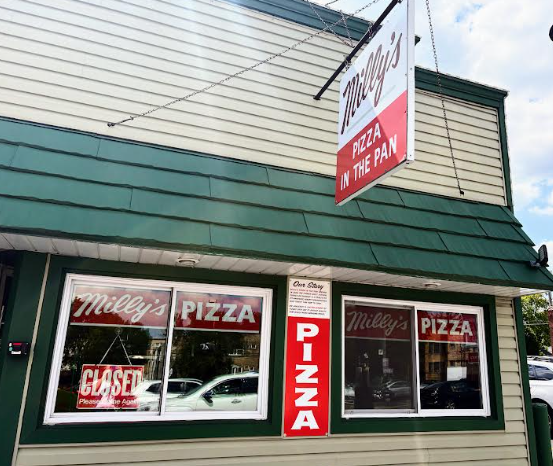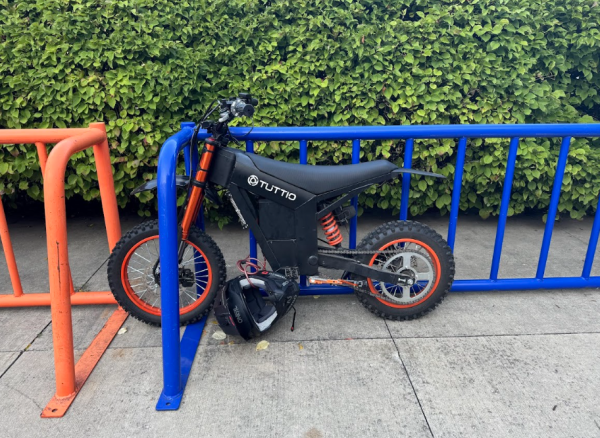Foreign war hits home
While I was getting ready for another busy weekend filled with homework, my family was preparing for a potential war with Russia igniting in their home. The thought of Russian missiles landing near them was a lingering concern.
Most of my father’s family lives in Poland, which borders Ukraine. Despite having limited connections with my family in Poland, I feel a strange sense of anxiety about this conflict.
I often wonder what would happen if the war in Ukraine spread across Europe. Despite Poland being a part of the North Atlantic Treaty Organization (NATO), a defensive alliance likely granting it safety against potential Russian aggression, I still have unshakable anxiety. Despite the unlikelihood of an invasion in Poland, whenever I look at war footage I ask myself the same questions: How will the United States respond? Could a nuclear war begin? Could Russian tanks end up in Poland? Where would my family go? My 19-year-old cousin Amelia Kedziora studies medicine at the University of Warmia and Mazury, in Olsztyn (Ol-sh-tin) Poland, about 300 miles from Ukraine’s border. When the conflict started, she said she and her friends were shocked and fearful, but also angry. “We did not expect we were going to live through a major historical event,” she said. She is thankful Poland is part of NATO, and has strong diplomatic relations with the United States, which she hopes will prevent war from starting in Poland.
Day-to-day life in Poland has changed dramatically after war began. A gas shortage caused prices to spike from $4 to $6 a gallon in some places, and Russian goods, like cosmetics and food, are no longer on Polish store shelves.
Supply shortages haven’t prevented Poland from largely supporting Ukraine. Poles have taken in more than 2.5 million Ukrainian refugees. “I have never seen Polish people so united in my life,” said Amelia. Individuals’ donations range widely, from blood to money, while the Polish government is devising a $1.7 billion refugee aid package.
Besides donations, Amelia said social media support in Poland is very high. “When the war began people were projecting the Ukrainian flag on monuments and buildings. People are also gathering near the Russian embassy and protesting the war.”
Poland’s newfound unity contrasts sharply with how the war has separated Russians from the world. Amelila sees such divisions in her own life. “I was learning about Russian Culture for a long time. Russian people are truly amazing people, but now I know studying in Russia will not be possible.” Amelia has friends in Russia, has been learning Russian since she was 11, and has visited the country twice. She wants to emphasize that actions of Russia’s president do not represent values of Russian citizens. “I feel sorry for Russians, that they have such an awful president, and they truly believe that he is a great person working in their interests,” she said. My mothers side of the family also has connections to Ukraine, and my Uncle still has friends living there.
My uncle, Mike Skaggs, is a former military diplomat and professor of Russian security policy at George Washington University. He has personal connections to Ukraine through his work; he worked in Ukraine as a security attaché from 2013 to 2016. His primary responsibilities included hosting U.S. VIP’s, communicating with the Ukrainian Military, and updating the department of defense on important events.
He was also tasked with observing the 2014 Maidan protests in Kyiv. Mass protests against former Ukrainian president Victor Yanukovych were initially peaceful responses to his refusal to join the European Union, despite campaign promises to do so. Yanukovych’s use of police violence against protestors meant that hundreds were killed by Ukrainian security forces, while Yanukovych fled to Russia.
“It (the Maidan riots) really was a telescope into Ukrainian civil society; this whole (protest) was voluntary,” Skaggs said. At the protests, “People would show up with carloads of food and bottled water (for protestors). You would have old ladies cooking giant pots of food 24/7, just giving it out to people. It was really fascinating to see the self generating civil society that kept this thing going for months” said Skaggs.
This attitude of cooperation and solidarity remains during the current conflict. Skaggs said, “The Citizens volunteered to help the army and fight for Crimea, and the same thing is seen now with people volunteering in mass. Ukraine is a giant country of people that reminds me of a small town.” From Skaggs’s experience, Ukrainians are incredibly helpful and welcoming to foreigners. He said he believes “there are no tow trucks in Ukraine,” because when your car breaks down, someone will show up with a rope to help you.
Skaggs’s final years in Ukraine were spent rebuilding the military from the ground up. Ukraine’s military is now modeled after other NATO countries, and in many aspects is more advanced than Russia’s, which is fundamentally weak, plagued by bad command structure, old weapons, demotivated soldiers, and disorganized communication.
This most recent conflict has greatly changed Skaggs’s view on Russia. “I would never have predicted any of this,” he said. “Their policy objectives were to divide NATO because a strong NATO is bad for Russia. Invading Ukraine did exactly opposite. NATO is more united than it ever has been.” Because Russia has isolated itself, it has become a common enemy to the world and NATO.
My father, Derrick Kedziora, is deeply saddened, upset, and scared about Ukraine’s war. Derrick moved to the United States when he was 10. “I think it (leaving Poland) was certainly an economic opportunity, but also freedom,” he said. “My parents wanted for us an opportunity to live in a free country where we could do what we were capable of doing. To rise up in communist Poland you had to cooperate with the regime to succeed.” Moving to a new country was certainly difficult for Derrick. “I think I missed just about everything, I missed my family, my friends, and I didnt know the language,” said Derrick.
The war is difficult to watch for my Derrick because we have family members about 45 miles from the Ukrainian border, in Poland’s Rzeszow (Zhesh-oof) region.
Then there are the cultural ties. “I identify pretty closely with Ukrainians; there is a lot of shared history,” Derrick said. “You see yourself in their shoes, which makes it really difficult. You feel emotional, horrible, and helpless.”
Derrick nevertheless feels more optimistic about the war compared to when it started, because he says Ukraine’s strong defense against Russia has destroyed any opportunity for invasion further into Europe.
Like my relatives, I am happy to see global support of Ukraine. Russia is suspended from the United Nations Human Rights Council, and has been heavily sanctioned by the United States and the European Union.
Despite Ukraine’s widespread support and success, I can’t help but feel a little helpless and devastated. All the death and displacement caused by this war feels utterly pointless. It’s heartbreaking to see average people uprooted by a conflict motivated by one autocrat’s political goal. It’s hard to watch my father live through this. I often see him looking at news reports of the conflict, trying to stay as updated as possible. I can hear the weariness and concern in his voice when he talks about Ukraine, or when he looks at footage of the war. The war in Ukraine can only be described as tragic. I wish the best for Ukrainians living in and out of the country, and hope the war comes to a quick end.

